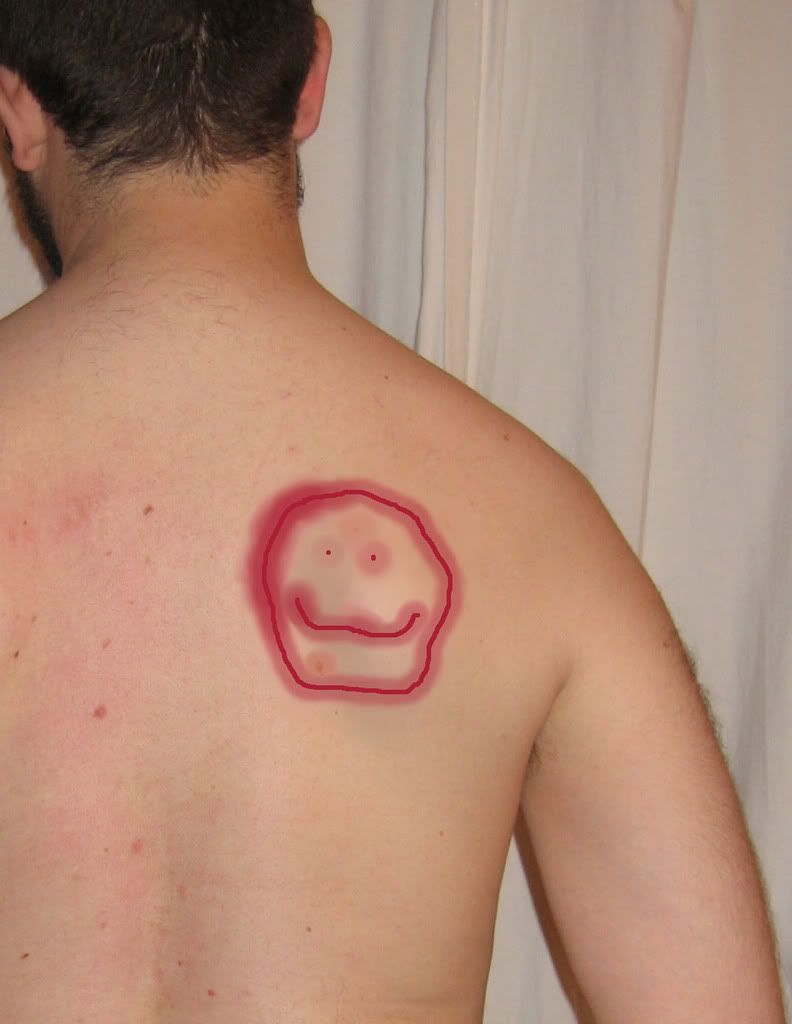 Source: Scra Cher
Source: Scra CherAfter months of tracking a mysterious skin condition, medical officials concluded on Thursday that excessive back scratching during church meetings caused epidermal breakouts among members of the Washington, D.C. 2nd Ward. The condition, although not contagious, was cause for concern for the congregation’s membership since outbreaks occurred at such high rates.
“I’ve never seen anything like it,” stated one member of the team of physicians commissioned to investigate the phenomenon. “Such a high concentration of a noncommunicable disease in a single population is unheard of.”
Officials initially diagnosed the outbreak as a rare form of shingles but later noticed that the markings on the skin were not random-- often occurring in distinct patterns, such as lettering from the English alphabet or simplistic images, like sailboats. Further investigation revealed messages on the skin, such as, “Nephi” or “Do you know what I’m spelling?”
Those diagnosed were sent home with cortisone ointment, a steroid based solution commonly used to reduce local inflammation. Doctors stated that the inflammation should go away in the matter of days but warned future back scratching could cause permanent damage to the skin.
Males were particularly prone to the outbreak. Said one congregation member, “It’s the brethren that are the victims here... I didn’t even ask for my back to be scratched!”
A heavy back scratch-er, who wished to remain anonymous, reasoned, “When a boy sitting next to me leans forward, I just assume that he wants me to scratch away... what’s so wrong about that?”
Other members of the back scratching crowd felt the act to be an necessary form of flirtation and asserted that no other method adequately communicated liking without disrupting the spirit of worship services. Doctors suggested that if back scratching simply could not be avoided, perpetrators should trim fingernails or wear mittens in order to prevent future outbreaks.
No comments:
Post a Comment